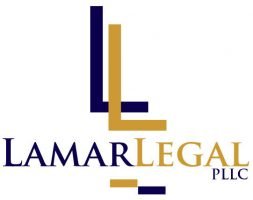
Coronavirus Aid, Relief, and Economic Security Act or CARES Act
Disclaimer: Materials contained on this website is prepared and intended for informational purposes only and are not legal advice. Information contained herein is not a substitute for legal advice from a qualified attorney licensed in the appropriate jurisdiction.
The $2.2 trillion Coronavirus Aid, Relief, and Economic Security (CARES) Act unanimously passed the Senate, and was signed into law on March 27, 2020. The CARES Act is in response to the COVID-19 (i.e., coronavirus disease-2019) pandemic and its far reaching impacts on the economy, public health, state and local governments, individuals, and businesses. The stimulus bill funds various loans, grants, and other forms of assistance for those individual, businesses, and industries in need, among other. Navigating the CARES Act might seem a little daunting (you can find it here), so here are some important details focused on specifically helping individuals and small businesses.
For Small Businesses
The CARES Act allocates funds to small businesses by providing loans and grants focused on helping them survive while possibly closed, or suffering due to the pandemic or other social distancing measures. The Paycheck Protection Program and Emergency Injury Disaster Loan & Grant Program are two of several types of funding aimed at support small businesses.
Paycheck Protection Program
The Paycheck Protection Program offers loans for eligible entities focused on helping companies keep employee(s) on the payroll, and stay open in the short term. The Paycheck Protection Loans are being issued using the existing system of the Small Business Administrations (SBA) 7(a) program, allowing private financial lenders to issue SBA guaranteed loans. The bill provides specific calculations on the maximum amount available for the loans.
Some of the allowable uses of proceeds from Paycheck Protection Loan include: (1) payroll costs; (2) costs related to the continuation of group health care benefits during periods of paid sick, medical, or family leave, and insurance premiums; (3) employee salaries, commissions, or similar compensations; (4) payments of interest of any mortgage obligation (not including any prepayment of or payment of principal on a mortgage obligation); (5) rent (including rent under a lease agreement); (6) utilities; and (7) interest on any other debt obligations that were incurred before the covered period.
The loans are designed to be forgiven. However, borrowers must ensure they meet certain eligibility requirements, and use the funds as specifically allowed. The amount of loan forgiveness may be reduced due to reductions in the number of employees, salary and/or wages.
Emergency Injury Disaster Loan & Grant Program (EIDL)
Provides small businesses and private non profit organizations that are suffering substantial economic damage as a result of COVID-19 with emergency grants, based on simplified qualifications for low interest working capital loans.
Eligible entities that apply for a loan under section 7(b)(2) of the Small Business Act (15 U.S.C. 636(b)(2)) in response to COVID-19 may request that the Administrator provide an advance subject to certain requirements, within 3 days after receiving an application.
The loan advance will not exceed $10,000 and may be used to address any allowed purpose including: (1) Providing sick leave to employees unable to work due to the direct effect of the COVID-19; (2) Maintaining payroll to retain employees during business disruptions of substantial slowdowns; (3) Meeting increased costs to obtain materials unavailable from the applicants original source due to interrupted supply chains; (4) Making rent or mortgage payments; and (5) Repaying obligations that cannot be met due to revenue losses.
Applicants are not required to repay any amounts of an advance provided, even if subsequently denied a loan under section 7(b)(2) of the Small Business Act (15 U.S.C. 636(b)(2)). For applicants who receive an advance and transfers into, or is approved for, the loan program under section 7(a) of the Small Business Act (15 U.S.C. 636(a)), the advance will be reduced from the loan forgiveness amount for a loan for payroll costs made under 7(a).
Individuals & Families – Relief for Workers Affected by Coronavirus Act
Pandemic Unemployment Assistance
The CARES Act temporarily increases the benefits and expands eligibility requirements of covered individuals for unemployment assistance. The new measures are aimed at helping people who have lost work as a direct result of the COVID-19 public health emergency. The eligibility expansion now includes freelancers, sole proprietors, and those participating in the “gig economy”.
The emergency assistance provides to any covered individual unemployment benefit assistance while such individual is unemployed, partially unemployed, or unable to work for the weeks of such unemployment with respect to which the individual is not entitled to any other unemployment compensation or waiting period credit.
The emergency assistance will be available to a covered individual for the weeks of unemployment, partial unemployment, or inability to work caused by COVID-19 between January 27, 2020 and December 31, 2020. The assistance will last for as long as the unemployment caused by COVID-19 continues, to a maximum of 39 weeks.
Additionally, the CARES Act increases the unemployment compensation benefits available to covered individuals. Under the new provisions, the amount of regular compensation payable for any week will include the amount determined under the State law + $600 of Federal Pandemic Unemployment Compensation.
Stimulus Checks For Individuals (Cash Payments)
Other Provisions
The CARES Act includes a multitude of other provisions that modify a wide range of programs and requirements, including those regarding:
- oversight of the activities and funding authorized by this bill;
- the tax treatment of withdrawals from retirement accounts, business income, losses, and charitable contributions;
- medical product supplies;
- health insurance coverage for COVID-19 testing and vaccinations;
- the health care and aviation workforces;
- mortgage payments, evictions, and foreclosures for properties with federally backed mortgages;
- student loans and financial aid;
- aviation excise taxes;
- Medicare and Medicaid;
- the Food and Drug Administration drug approval process;
- the emergency paid sick leave program;
- banking and accounting rules;
- limits on requirements for employers to provide paid leave;
- and the U.S. Postal Service’s borrowing authority.
Though the future for many individuals, small business owners, and industries is uncertain, the need for federal intervention to aid in the recovery was necessary to mitigate the impacts of the COVID-19 coronavirus pandemic. The CARES Act is a good start, and hopefully the first of other steps toward helping individuals, families, and small businesses.
Do You Have COVID-19 Legal Questions? Speak With An Attorney
The current pandemic raises many legal questions and considerations. Lamar Legal PLLC is fully operational and committed to continually supporting our clients during these times. If you would like to speak with an attorney regarding COVID-19 matters, please do not hesitate to get in touch with Attorney Alanna Lamar.








